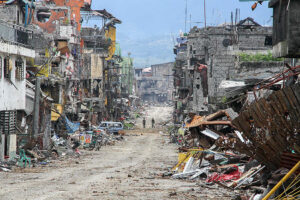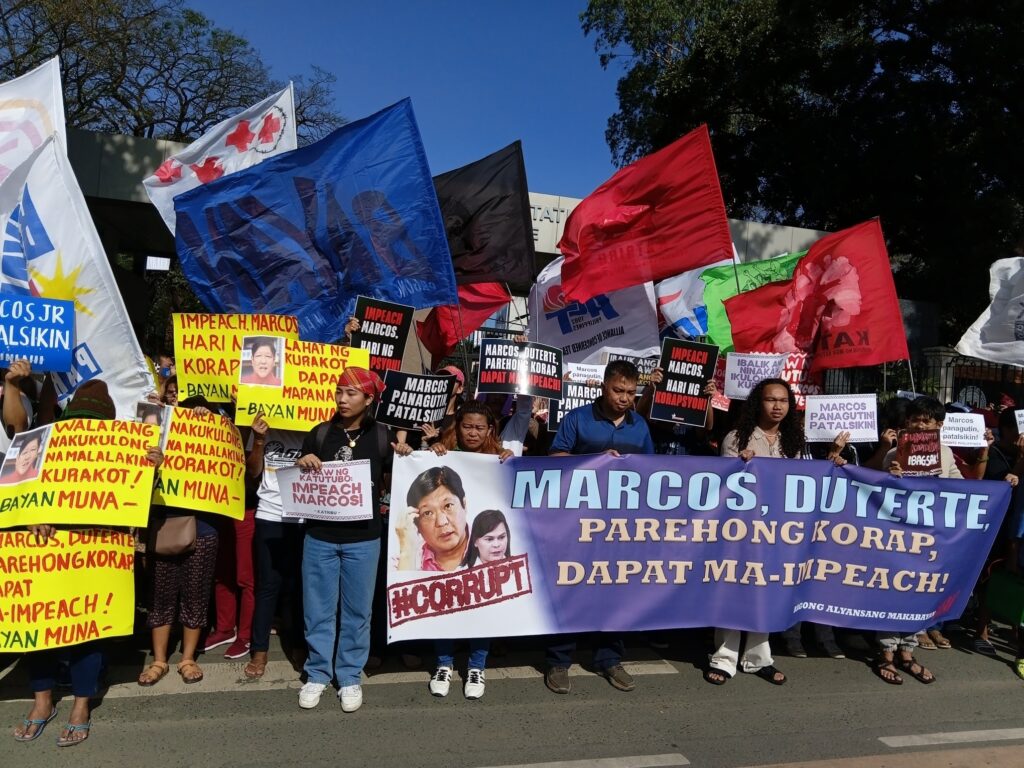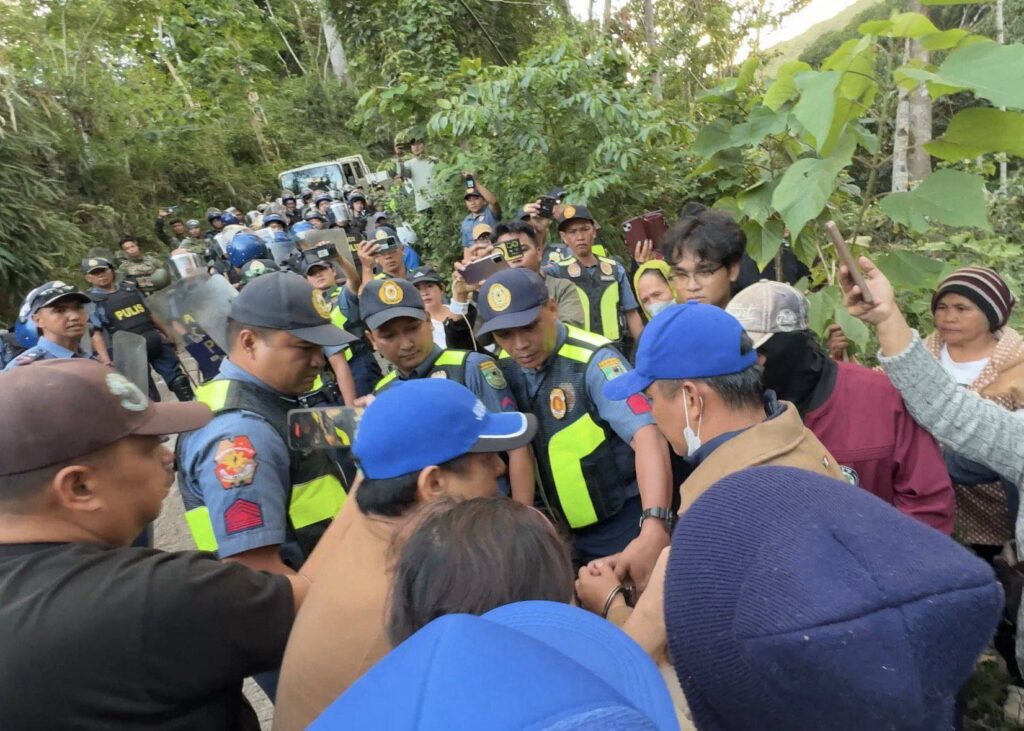📷ruins of Marawi siege | abs-cbn
SEVEN years of suffering seemed not enough for the government as over 16,000 families have yet to receive a dime of the compensation provided for under Republic Act 11696 otherwise referred to as the Marawi Siege Victims Compensation Act of 2022.
In a statement, the Commission on Human Rights (CHR) assailed the snail-paced process of paying the internally displaced families who have yet been able to recover from a war that they have nothing to do.
This comes as the CHR called on the national government to expedite the distribution of compensation to the families displaced during the five-month Marawi siege between the government troops and the Maute Group in 2017.
“Delays in disbursing benefits will lead to further repercussions such as food insecurity, inadequate sanitation facilities, and increased security risks,” CHR Chairperson Richard Palpal-latoc said in a statement.
Based on data coming from the United Nations Office for the Coordination of Humanitarian Affairs (UN-OCHA), approximately 16,070 families, or around 80,300 individuals, have continued to suffer seven years after the war.
Referred to as internally displaced persons (IDPs), the CHR said that they have resided in transitional shelters provided by the national government, under a five-year lease agreement between the landowners and the Task Force Bangon Marawi (TFBM).
Interestingly, the lease agreement expired last year, forcing the families to relocate or pay rent, among other financial responsibilities, to sustain their basic needs.
Previously, the displaced families assailed the amount that the government intended to pay them, even as they claimed that the compensation is not even close or commensurate to the cost of construction materials for them to rebuild war-torn houses.
As such, the CHR finds it imperative to reassess their (affected families) properties based on fair market value to ensure that the compensation package aligns with prevailing economic conditions.
“Being impacted by conflict and displacement is already traumatic. For seven years, these families have yearned to return to their normal lives. We urge all stakeholders to collaborate and expedite lasting solutions, enabling them to not only rebuild their homes but also their lives,” Palpal-latoc added.
The CHR also called on the national and local government units to consider the plight of the displaced families as a matter of urgent concern, as provided for under the UN Guiding Principles on Internal Displacement as established by the UN-OCHA.
The agency also urged the 19th Congress to pass House Bill 8269 or the Rights of Internally Displaced Persons Act, which guarantees a human rights-based approach for the protection and promotion of the rights of internally displaced people and other non-combatants in accordance with International Humanitarian Law and other international treaties and conventions if passed into law. (ANGEL F. JOSE)




